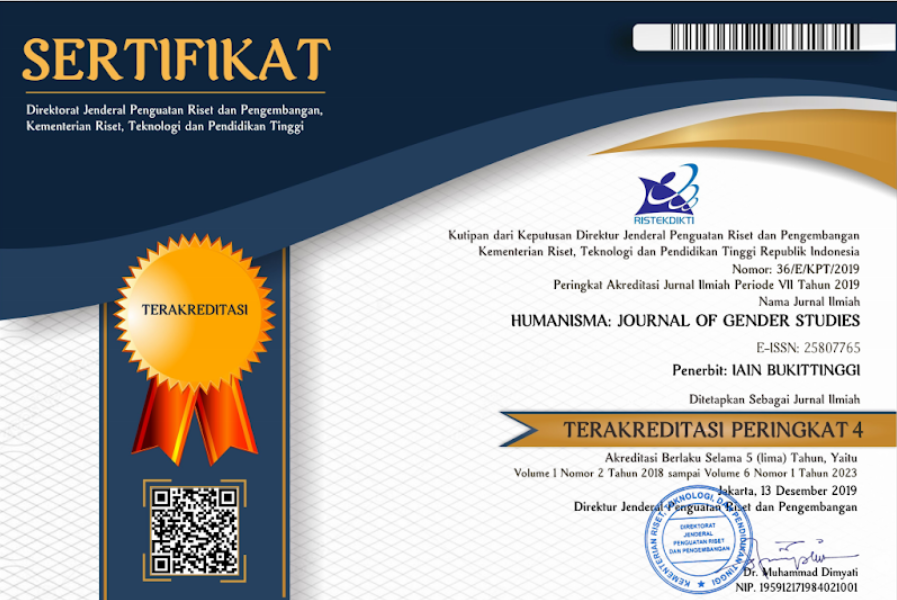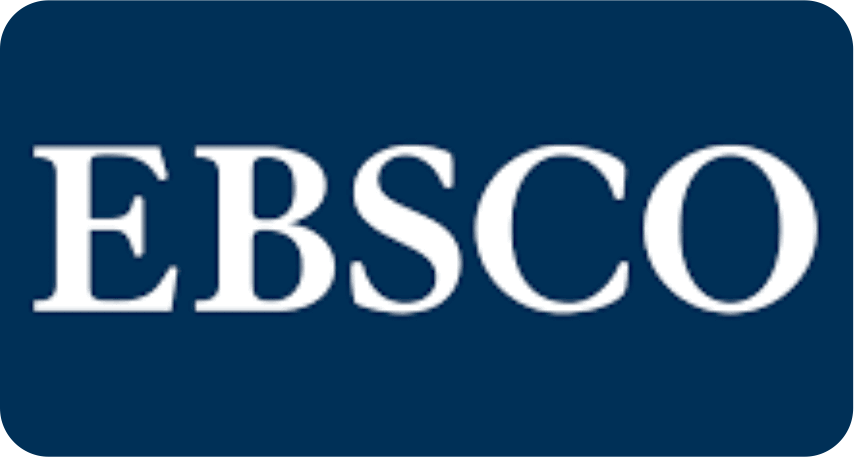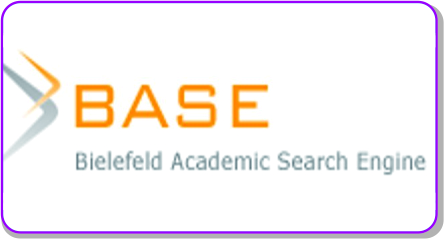Economic Exploitation of Children: Returning Child Labor to the World of Education Through Interpersonal Communication Towards Equal Education
DOI:
https://doi.org/10.30983/humanisme.v6i2.5870Keywords:
Child Labor, Economic Exploitation of Children, Equality Education,Abstract
Low family incomes force children to support households and become Child Labourers (PA) in the agricultural and household sectors. The agricultural sector is still the main source of income for most Indonesians; at least 70% of the archipelago's population is dependent on the agricultural sector. However, rural poverty remains relatively high. At least 16% of rural areas are poor compared to 9.9% of urban areas. Farm labourers have not been able to benefit significantly from economic growth, as it is undeniable that several problems have caused the agricultural sector to lag behind other sectors. This qualitative study will describe the processes that influence and shift the mindset of children and parents of child laborers to change their mindset and desire to continue their education. Economic exploitation in children is actually carried out by families, for example, by placing, allowing, and telling children to work as a form of economic exploitation. Good economic exploitation will result in good child development, but bad exploitation will have a bad impact on children, including lying, insensitivity, low self-esteem, developmental disorders, oppressing the weak, difficulty forming and interacting with the environment, anxiety, low self-esteem, and personality disorders. Equality education is another way for children to re-enter school. It is necessary to optimise all stakeholders to eliminate child labour and return child labourers to school. It is necessary to strengthen equivalency schools in various places so that they can be reached by children with economic difficulties or difficulties integrating into public schools. Preventive efforts must be made to ensure that children do not drop out of school and are prepared to enter the global workforce, including introducing and raising awareness of the importance of education, as well as providing affordable education to all.
References
Journal
Dewi Shinta Wulandari Lubis, S. G. D. (2021). Peningkatan Minat Lulusan Paket C PKBM Bumi Literasi dalam Melanjutkan Studi ke Perguruan Tinggi. JPM: Jurnal Pengabdian Masyarakat, 2(1), 7–9. Retrieved from http://www.djournals.com/jpm/article/view/202
Filiana, W., & Rachmat, A. Z. (2022). Tahapan Perencanaan Dalam Kegiatan Program Kesetaraan Paket C PKBM MeKar Sari Kabupaten Kaur. Journal Of Lifelong Learning. Retrieved from https://ejournal.unib.ac.id/index.php/jpls/article/view/22303
Fitzsimons, E. 2007 “The Effects of Risk on Education in Indonesiaâ€. Institute for Fiscal Studies. Journal of Economic Development and Cultural Change. Volume, issue, Vol. 56, No. 1
Islam, P. A., Tarbiyah, F., Sunan, U. I. N., & Djati, G. (2021). Optimalisasi Program Pusat Kegiatan Belajar Masyarakat ( PKBM ) Dalam Menurunkan Angka Putus Sekolah di Kelurahan Kopo. … UIN Sunan Gunung …, 68(Desember). Retrieved from https://proceedings.uinsgd.ac.id/index.php/proceedings/article/view/1282
Pasca Surya Bayu, E., & Sari Wahyuni, D. (2020). Perwujudan Indonesia Layak Anak (Studi Kasus PKBM Kasih Bundo Kota Bukittinggi Sebagai Penyelenggara Pendidikan Kesetaraan). AGENDA: Jurnal Analisis Gender Dan Agama, 2(1), 58. https://doi.org/10.31958/agenda.v2i1.1992
Raharjo, T. J., Suminar, T., & Ilmu. (2010). Model Pemberdayaan Pusat Kegiatan Belajar Masyarakat Dalam Pengelolaan Program Pendidikan Kesetaraan Berbasis Life Skills Dan Kewirausahaan. Edukasi, 1(2). Retrieved from https://journal.unnes.ac.id/nju/index.php/edukasi/article/view/955
Rahman, A. (2018). Meningkatkan Prestasi Belajar Kesetaraan Paket C Melalui “Kebiri†Berhasil Mengajak Kembali Anak-Anak Putus Sekolah ke PKBM SMAN 1 Pangale (Kab …. Jurnal Ilmiah Maju. Retrieved from http://download.garuda.kemdikbud.go.id/article.php?article=1280689%5C&val=17085%5C&title=Meningkatkan Prestasi Belajar Kesetaraan Paket C Melalui Kebiri Berhasil Mengajak Kembali Anak-Anak Putus Sekolah ke PKBM SMAN 1 Pangale Kab Mamuju tengah Sulawesi Ba
Rahmawati, N. K., Maruf, A. H., Ahmad, A., & ... (2022). Pendampingan Pembelajaran Dan Pemberian Motivasi Dalam Meningkatkan Minat Belajar Bagi Anak-Anak Di PKBM. Journal of Social …. Retrieved from https://ejournal.uinib.ac.id/jurnal/index.php/sosialoutreach/article/download/3846/2461
Suhendro. (2019). Pelaksanaan Program Pendidikan Kesetaraan Di Pusat Kegiatan Belajar Masyarakat (Pkbm) Kecamatan Terentang. Jurnal.Untan.Ac.Id/, 1–11. Retrieved from https://jurnal.untan.ac.id/index.php/jpdpb/article/viewFile/34103/75676582061
Syaefuddin, S., Yuliani, L., & Oktiwanti, L. (2019). Pemberian Kartu Indonesia Pintar (KIP) Dalam Upaya Meningkatkan Motivasi Belajar Bagi Peserta Didik di PKBM GEMA Pada Pendidikan Kesetaraan Program Paket B dan C Kecamatan Tawang Kota Tasikmalaya. Comm-Edu (Community Education Journal), 2(2), 147. https://doi.org/10.22460/comm-edu.v2i2.2611
Books
Beegle, K., Dehejia, R., dan Gatti, R. 2006 “Child labor and agricultural shocksâ€. Journal Dev Econ.
BPS-ILO IPEC. 2009. Survey Pekerja Anak Indonesia
Cendikian, PKBM, 2022. Profile PKMB Cendika Entral Lampung.
Haryadi, 2022, Wawancara, kepala sekolah PKBM Cendikia, 5 April
Haspels, Nalien dan Suriyasan, Busakom.2005.. Meningkatkan Kesadaran Gender, dalam Aksi Penanggulangan Pekerja Anak serta Perdagangan Perempuan dan Anak. Jakarta ILO.
Cornelius C.G. 2017. “Analisis Kejahatan Terhadap Eksploitasi Anak Sebagai Pengemisâ€, Bandar lampung.Fakultas Hukum Unila
Maccini, S dan Yang., D .2009. “Under the Weather: Health, Schooling, and Economic Consequences of Early-Life Rainfall“. American Economic Review.
Nurhalim, Khomsun. 2014. Strategi pembelajaran Non Formal. Semarang: UNNES Press
Rudianto, Arifin, Dr.Ir.MSC. 2020. Pedoman Teknis Penyusunan Rencana Aksi-Edisi II, Tujuan Pembangunan Berkelanjutan/Sustainable Development Goals. Jakarta, Bapenas
Others
ILO, 2022. www.antaranews.com/berita/317301/ilo-apresiasi-Indonesia-kurangi-pekerja-Anak
Jarak. 2020. Doc Seknas Jaringan LSM Penanggulangan pekerja Anak Jakarta
Joni, Muhammad, Tanamas. Zuhina Z.2014. Aspek Hukum Perlindungan Anak Dalam Persfektif Hak Anak. Bandung, Citra Adia Bakti.
Kamil, Mustofa. 2011. Pendidikan Non Formal Pengembangan Melalui Pusat Kegiatan Belajar (PKBM) di Indonesia (Sebuah Pembelajaran dari Kominka di Jepang). Bandung: Alfabeta.
Kemenaker, 2014. Peta Jalan Menuju Indonessia Bebas Pekerja Anak 2020
Komar, Oong. 2006. Filsafat Pendidikan Nonformal. Bandung: Pustaka Setia.
Konvensi ILO
Lambang . 2018. Pedoman Pendampingan PA , Perkumpulan Lampung Membangun.
PP no 73 tahun 1991 Pendidikan Luar Sekolah
Sudarto. Aye, 2021. Peran Keluarga Dalam Perlindungan Anak, https://www.kompasiana.com/ayesudarto/59763a85da1e4a5f452277a2/peran-keluarga-dalam-perlindungan-anak?page=all#section2
__________. 2020. Situasi Pekerja Anak Indonesia Tahun 2020 https://www.kompasiana.com/ayesudarto/5ff3b5818ede487011345812/situasi-pekerja-anak-indonesia-tahun-2020
UU no 20 .2003. Sisdiknas
Wartati. Sri, dkk.2017. Era Baru Dalam pengentasan Kemiskinan di Indonesia, The World Bank Jakarta
Yayuk. 2022. Lampung mencari solusi pendidikan lewat Neraca Pendidikan Daerah (NPD) https://wartasindo.com/2019/03/11/lampung-mencari-solusi-pendidikan-lewat-neraca-pendidikan-daerah-npd/
Downloads
Submitted
Accepted
Published
Issue
Section
License
Authors who publish with this journal agree to the following terms:
- Authors retain copyright and grant the journal right of first publication with the work simultaneously licensed under a Creative Commons Attribution-ShareAlike 4.0. that allows others to share the work with an acknowledgment of the work's authorship and initial publication in this journal.
- Authors are able to enter into separate, additional contractual arrangements for the non-exclusive distribution of the journal's published version of the work (e.g., post it to an institutional repository or publish it in a book), with an acknowledgment of its initial publication in this journal.
- Authors are permitted and encouraged to post their work online (e.g., in institutional repositories or on their website) prior to and during the submission process, as it can lead to productive exchanges, as well as earlier and greater citation of published work (See The Effect of Open Access).



















